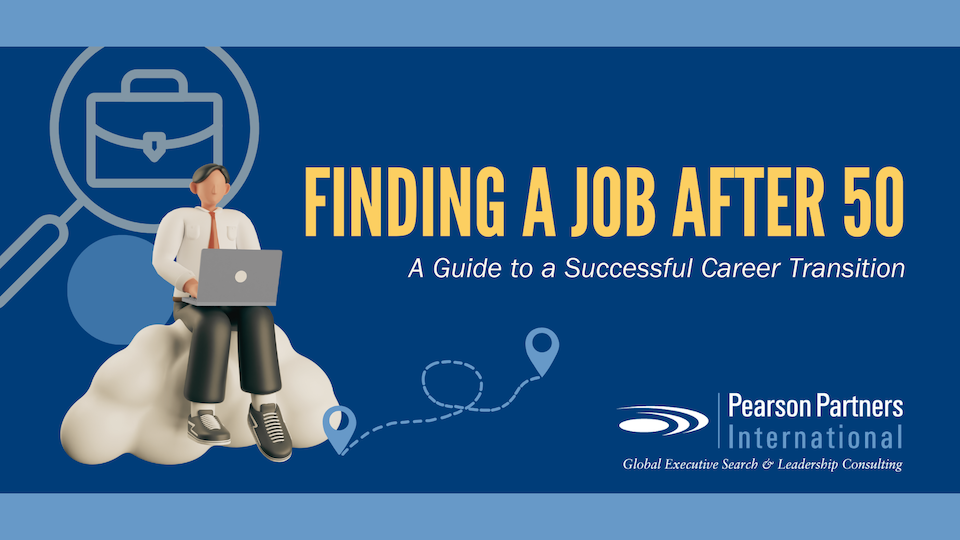Finding a Job After 50:A Guide to a Successful Career Transition
Finding a job after 50 can be a challenging yet rewarding endeavor. People often ask me if it is hopeless to look for a job after a “certain age.” Everyone has heard stories about ageism and the perception that older workers are not in demand because they are not current with emerging trends and technology or can’t keep up with the required pace. How can you overcome age-related biases and effectively leverage your experience to stand out in a competitive job market? In this article, I provide insights and strategies for navigating the job market after 50, addressing common concerns and offering practical tips for a successful career transition.
Embrace Lifelong Learning
A commitment to lifelong learning is one of the most critical factors in finding a job after 50. Building new skills and staying updated on industry trends is essential in today’s rapidly evolving job market. Consider enrolling in workshops, online courses or certification programs to enhance your knowledge and make yourself more marketable to potential employers. This proactive approach broadens your skill set and signals to employers your willingness to adapt and grow, which are crucial traits in today’s workforce.
Leverage Transferable Skills
People with extensive work experience often have valuable, transferable skills across various industries. Identify the skills you have developed throughout your career and highlight them in your resume and job interviews. Effective communication, leadership, problem-solving and adaptability are examples of transferable skills that employers highly value. Moreover, demonstrate how these skills can apply to new roles and industries by providing concrete examples of past experiences. Consider leveraging your skills to mentor others and help them grow in their careers.
Maintain Your Resume and LinkedIn Profile
Update your resume to highlight your achievements and showcase your breadth of experience, emphasizing your most relevant skills and accomplishments. Focus on your last 10–15 years with quantifiable achievements. Additionally, ensure your LinkedIn profile is continually up-to-date and reflects your professional journey. LinkedIn is a powerful networking and job search tool, so leverage it effectively by engaging with industry professionals, joining relevant groups and sharing insightful content.
For more tips on maintaining your LinkedIn profile, see my companion article, Maintaining a Powerful LinkedIn Profile: A Comprehensive Guide for Senior Executives.
Network Strategically
Networking is crucial in executive-level job hunting, especially for individuals over 50. Attend industry events, join professional groups, and connect with former colleagues and acquaintances. Networking can open doors to new opportunities and offer valuable insights into the job market. Do not hesitate to seek advice from mentors or industry professionals who can provide guidance based on their experiences. Additionally, consider corporate and nonprofit board service, volunteering and participating in community initiatives to expand your network and showcase your skills and expertise. A well-curated network is not just a path to new opportunities but also a source of support and advice, making your job search a more manageable and less isolating experience.
Showcase Adaptability
Employers often seek candidates who are adaptable and willing to embrace change. Be prepared to show how you have successfully navigated transitions in the past and how your skills apply to the evolving demands of the job market and your industry. Emphasize your ability to learn quickly and adapt to innovative technologies and work environments. Highlight specific instances where you have demonstrated flexibility and agility in response to challenges or changes in the workplace. This adaptability demonstrates resilience and a forward-thinking mindset—highly prized in today’s dynamic work landscape.
Address Age-Related Concerns Proactively
Addressing potential age-related concerns proactively during the job search process is essential. Emphasize your enthusiasm for learning, staying current in your field and contributing to a dynamic work environment. Focus on your value and experience rather than dwelling on age-related stereotypes. Additionally, consider incorporating modern technologies and tools into your skill set to demonstrate your willingness to embrace innovation and stay relevant in today’s workforce. Showcasing a proactive, energetic approach can help mitigate potential biases and highlight the unique advantages of your experience.
In conclusion, finding a job after 50 requires a strategic and proactive approach. Embrace lifelong learning, leverage transferable skills, maintain your resume and LinkedIn profile, network strategically, showcase adaptability and address age-related concerns proactively. By adopting these strategies, people over 50 can navigate the job market successfully and embark on a fulfilling and rewarding career transition.
